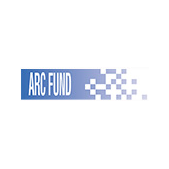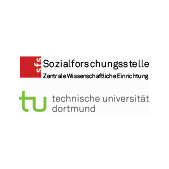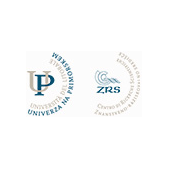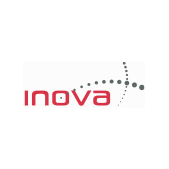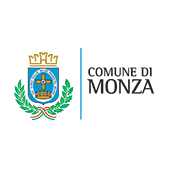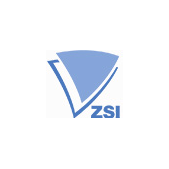CASI Webinar 2015
The aim of the CASI Webinar 2015 “Sustainable Innovation and Public Participation: An Assessment and Management Framework” was to increase further the knowledge and capacity of different stakeholders in terms of sustainable innovation issues and practices, as well as to inform them about the CASI project ambitions and results achieved.
The webinar was held on two days - 9th and 10th of December 2015 - and was structured around the following seven sessions focused on different topics and issues related to sustainability and sustainable innovation:
- Session 1: Why is sustainability a key driver of innovation?
- Session 2: State-of-the-art of sustainable innovation: lessons from a pan-European study
- Session 3: The role of social innovation for sustainability
- Session 4: Public engagement in sustainable innovation
- Session 5: Public participation as a success factor for sustainability: insight from CASI policy briefs
- Session 6: CASI-F: a common framework for the assessment and management of sustainable innovation
- Session 7: CASI-F in action: an application of the framework to a case of sustainable innovation
Session 1: Why is sustainability a key driver of innovation?
The session outlines CASI objectives, main contributions and achievements thus far, demonstrating how CASI fosters sustainability awareness in innovation thinking and policy planning. It also look into the relevance of sustainability considerations as a driver of innovation – both technological and social – in the recent decades.
Programme
- Welcome and introduction, Zoya Damianova (ARC Fund)
- CASI in the context of the European sustainability ambitions, Zoya Damianova (ARC Found)
- Why is sustainability a driver for innovation?, Blagovesta Chonkova (ARC Fund)
- Questions and answers
Download 1st presentation [PDF, 387 kB]
Download 2nd presentation [PDF, 218 kB]
Session 2: State-of-the-art of sustainable innovation: lessons from a pan-European study
This session presents key lessons from a pan-European study on sustainable innovations with a focus on the European Union's Horizon 2020 priorities on climate action, raw materials, resource efficiency, and environmental challenges. The presentation includes an introduction to the principal factors affecting sustainable innovation assessment as well as a comprehensive review of the most important issues to be considered in sustainable innovation management.
Programme
- Welcome and introduction, Rafael Popper (University of Manchester)
- Key sustainable innovation priority areas, Guillermo Velasco (University of Manchester)
- Key features of sustainable innovation by type and scale of innovation, Rafael Popper (University of Manchester)
- Key success factors, drivers, barriers and SWOTs from sustainable innovation assessment, Guillermo Velasco (University of Manchester)
- Key dimensions, aspects and critical issues for sustainable innovation management, Rafael Popper (University of Manchester)
- Questions and answers
Session 3: The role of social innovation for sustainability
After defining the concept of social innovation, the session emphasises the strategic role of social innovation for the transition towards a CO2-reduced society and economy and provides some actual examples.
Programme
- Welcome and introduction, Jürgen Schultze (Technical University Dortmund)
- Social innovation: definition and its potential for sustainability, Jürgen Schultze (Technical University Dortmund)
- Existing practice of social innovation to meet the “green challenge”, Christian Voigt (Centre for Social Innovation)
- Questions and answers
Session 4: Public engagement in sustainable innovation
Science and technology play a crucial part in shaping our modern life and our future. This is why the public should have a say in deciding which research or which type of research gets funded with public funds. Engaging in dialogue with the public when developing research and innovation can lead to more socially robust results. This is especially valuable when decision makers need to find the right but often unclear path towards a sustainable future and a balance of the dimensions of economy, the environment and social wellbeing. So how should decision makers and scientists engage with the public on the topic of sustainable innovation?
Programme
- Welcome and introduction, Lars Klüver (Danish Board of Technology Foundation)
- Strategies of public engagement in innovation and future potential, Lars Klüver (Danish Board of Technology Foundation)
- Experiences with citizens engagement (case presentation), Edward Anderson (associate for Involve)
- Questions and answers
Download 1st presentation [PDF, 149 kB]
Download 2nd presentation [PDF, 2.11 MB]
Session 5: Public participation as a success factor for sustainability: insight from CASI policy briefs
The CASI policy watch establishes a common interface for easy monitoring of and interchange with current EU and national policy cycles in order to enable the streamlining of sustainable innovation measures into organisational, national and European strategic and policy planning processes. The two stage policy brief process developed by CASI involves approaching the policy topic first at a European level, and then selected topics are elaborated on at the national level. The EU policy framework is addressed in order to elaborate on CASI recommendations and the related policy trends.
Programme
- Welcome and introduction, Kaisa Matschoss (University of Helsinki)
- Smart Cities as Sustainable Innovation Actors, Anita Tregner-Mlinaric (Meta Group)
- Eco-Innovation Action Plan in an Environmental Policy Context, Petteri Repo (University of Helsinki)
- CASI recommendations within the EU Policy framework, Anita Tregner-Mlinaric (Meta Group) and Petteri Repo (University of Helsinki)
- Questions and answers
Download 1st presentation [PDF, 1.07 MB]
Download 2nd presentation [PDF, 957 kB]
Session 6: CASI-F: a common framework for the assessment and management of sustainable innovation
A conceptual introduction to CASI-F is presented, including description of how CASI’s triple-track approach/sources (sustainable innovation initiatives, citizens’ visions, and sustainable innovation policies) has been conceived to build on primary and secondary data collection (intelligence 1.0/information) to identify/assess critical issues (intelligence 2.0/ideas) to generate recommendations (intelligence 3.0/ actions). The session concludes with a discussion on CASI-F application to sustainable innovation assessment and management.
Programme
- Welcome and introduction, Rafael Popper (University of Manchester)
- The triple-track approach/sources, Guillermo Velasco (University of Manchester)
- Data mapping: Exploring CASIPEDIA and the CASI Library, Rafael Popper (University of Manchester)
- Critical issues identification and actions generation, Guillermo Velasco (University of Manchester)
- Further steps in CASI-F: Piloting and applications, Rafael Popper (University of Manchester)
- Questions and answers
Session 7: CASI-F in action: an application of the framework to a case of sustainable innovation
This session takes the delegates through selecting a case to use CASI-F, preparing for the application and considerations to bear in mind when applying the framework. Considerations will encompass the different perspectives that stakeholders bring and the impact on the differing levels of management actions. The session applies CASI-F to the Location Independent Working case (UK).
Programme
- Welcome and introduction, Corinne Edwards (Coventry University Enterprises)
- An introduction to CASI-F, Corinne Edwards (Coventry University Enterprises)
- Selecting the case and preparing to complete CASI-F, Corinne Edwards (Coventry University Enterprises)
- Demonstrating the consideration of the impacts of perspectives in and on decision making levels on the location independent working case, Corinne Edwards (Coventry University Enterprises)
- Questions and answers


